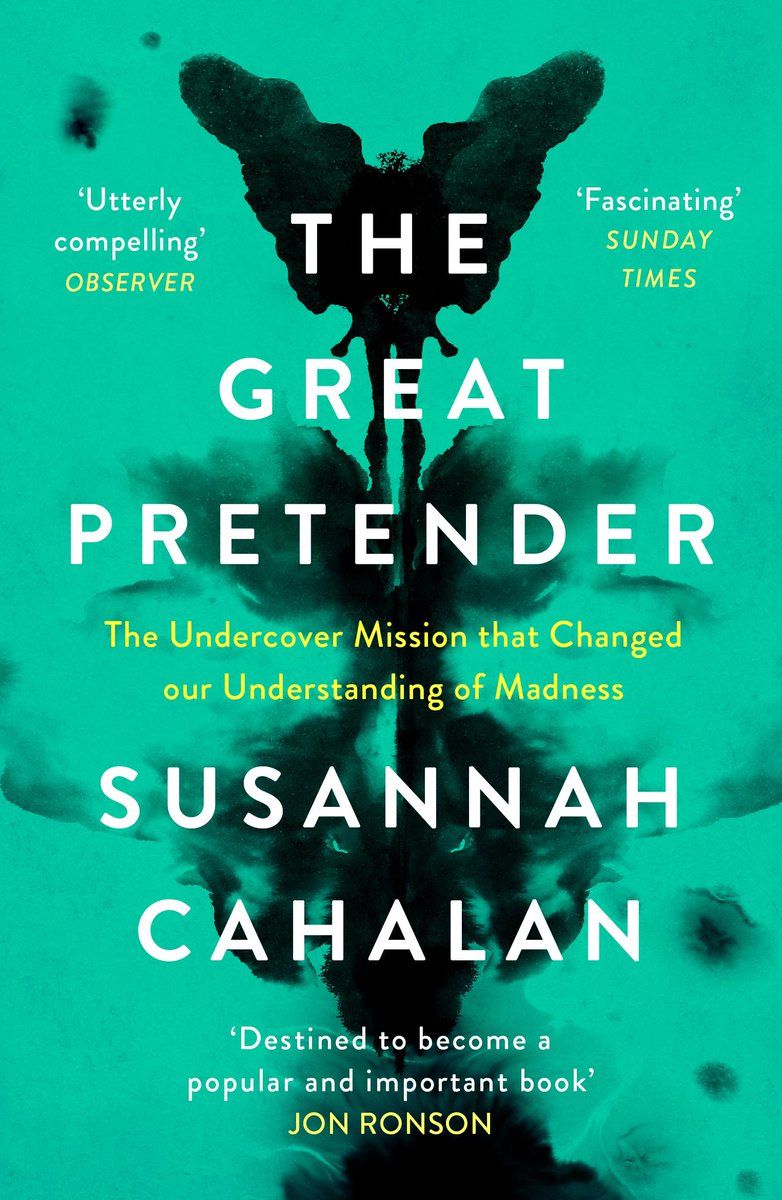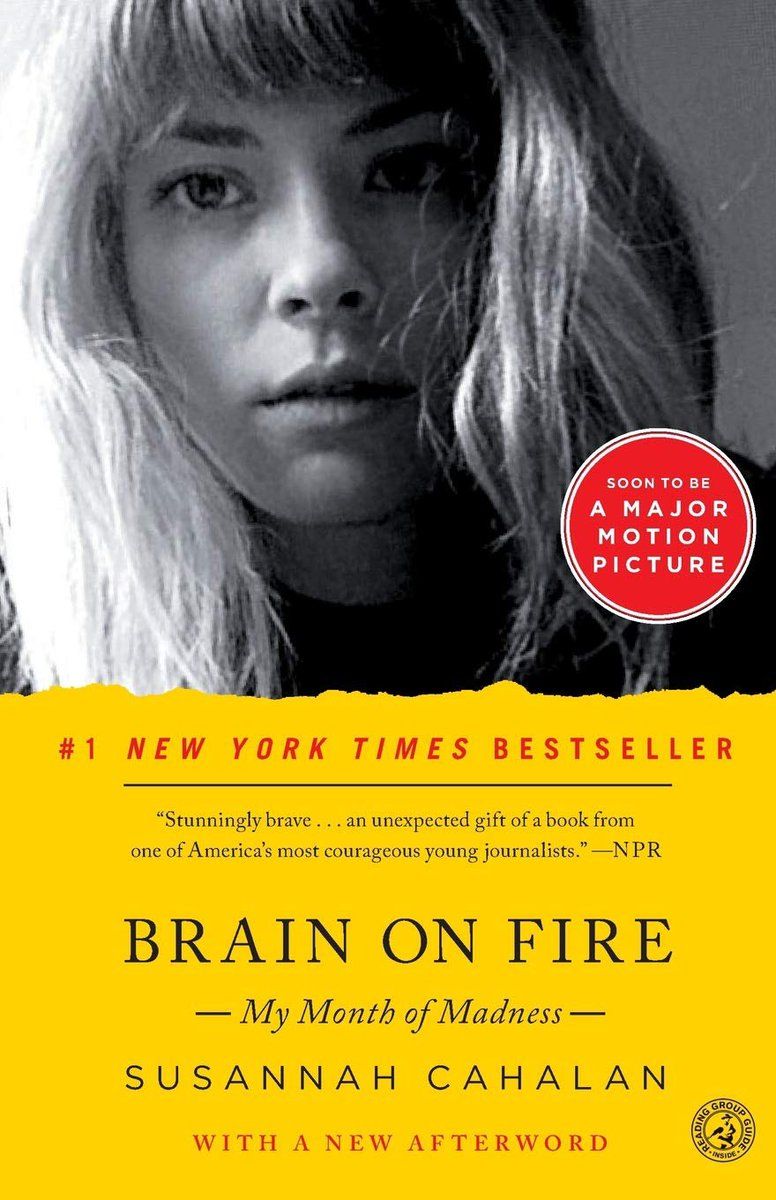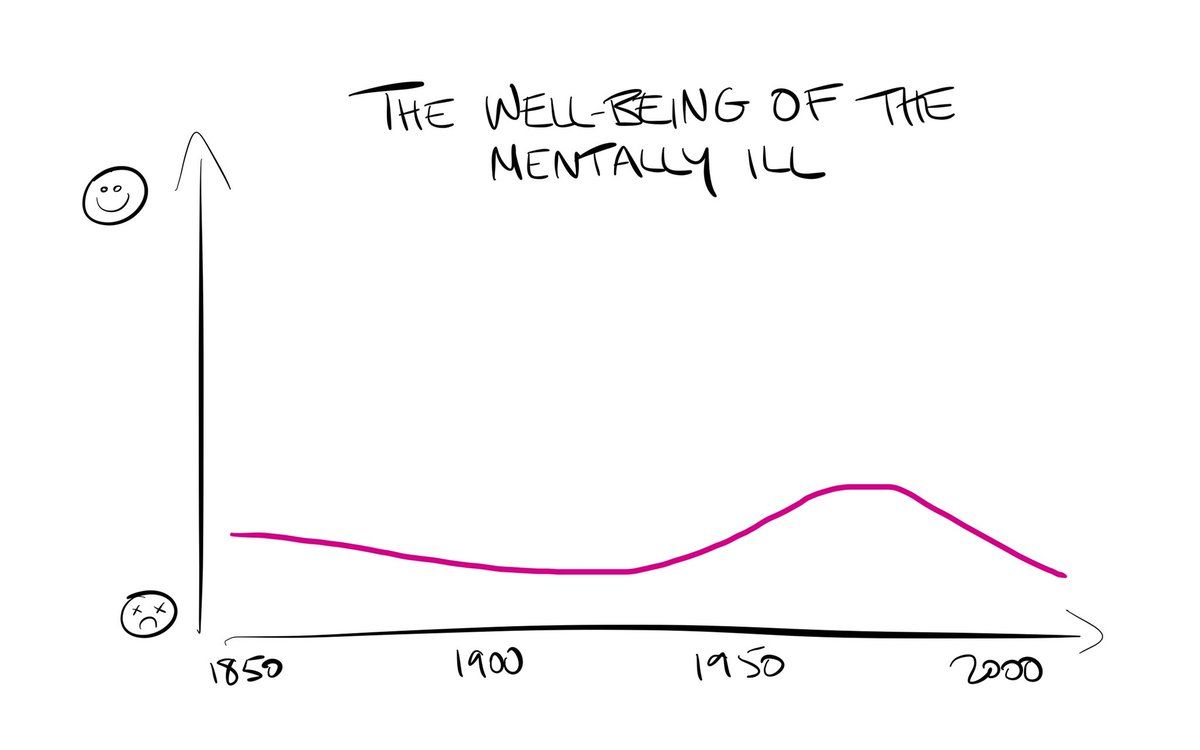-
I am 45 pages into The Great Pretender by scahalan and it's already one of the best books on mental illness I've read. I have goosebumps from the documented historic abuse and mistreatment of "patients". I have a feeling I know where this is heading as we approach present time.
-
…in reply to @axbom
If you don't know who Susannah Cahalan is, she is the person portrayed by ChloeGMoretz in the film Brain on Fire, which is based on Cahalan's memoir with the same name. Here's her Wikipedia page: en.m.wikipedia.org/wiki/Susannah_Cahalan
-
…in reply to @axbom
The title "The Great Pretender" comes from the "great pretender diseases". They are illnesses that look and appear as other conditions (such as insanity) and will be diagnosed as such unless someone dares question this verdict. Hence my tweet earlier today. axbom/1342767911807688706
-
…in reply to @axbom
The first two categories for mental illness in the US were simply "idiocy" and "insanity". By 1880 this had expanded into seven: mania, melancholia, monomania, paresis, dementia, epilepsy and dipsomania. The diagnostic methodology, and treatment practices, left much to hope for.
-
…in reply to @axbom
People with the right status and money were keen on having troublesome family members committed to asylums. Charles Dickens tried to commit his wife Catherine so that he could pursue an affair with an 18-year old actress. smithsonianmag.com/smart-news/newly-analyzed-trove-letters-charles-dickens-180971545/
-
…in reply to @axbom
On 16 March, 1912 a leader in The Times explained suffragette militancy by attributing it to women’s “Insurgent Hysteria”. "When this [type of woman] has reached a certain age", a physician explained, “we know that there is no help in us”: francesca-scriblerus.blogspot.com/2013/07/were-suffragettes-insane.html
-
…in reply to @axbom
British writer Lady Rosina's feminist views bothered ex-husband Sir Bulwer Lytton in his ambition for a seat in parliament - so he had her committed. Her own celebrity saved her. (He was the inventor the cliché "It was a dark and stormy night") blog.wellcomelibrary.org/2015/09/a-blighted-life-the-incarceration-of-rosina-bulwer-lytton/
-
…in reply to @axbom
«During the twentieth century, neurology broke off into a distinct branch of medicine, and in doing so “claimed exclusive dominion over the organic diseases of the nervous system”—like stroke, multiple sclerosis and Parkinson's.»
-
…in reply to @axbom
«Meanwhile, psychiatrists took on the ones “that could not be satisfactorily specified by laboratory science”—like schizophrenia, depression, and anxiety disorders. Once a biological breakthrough was achieved, the illness moved out of psychiatry and into the rest of medicine.»
-
…in reply to @axbom
I'm now up to the point where it feels like this book has punched me in the stomach. And still I want everyone to read it. Thinking now of starting a neuroscience book club. Pleased that Calahan has gone through many of the science cons I reference in this thread: axbom/956829916548550656


